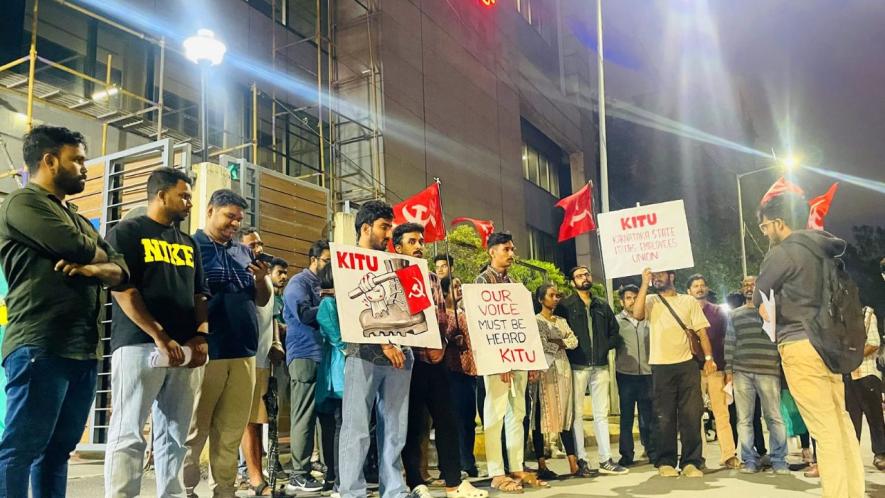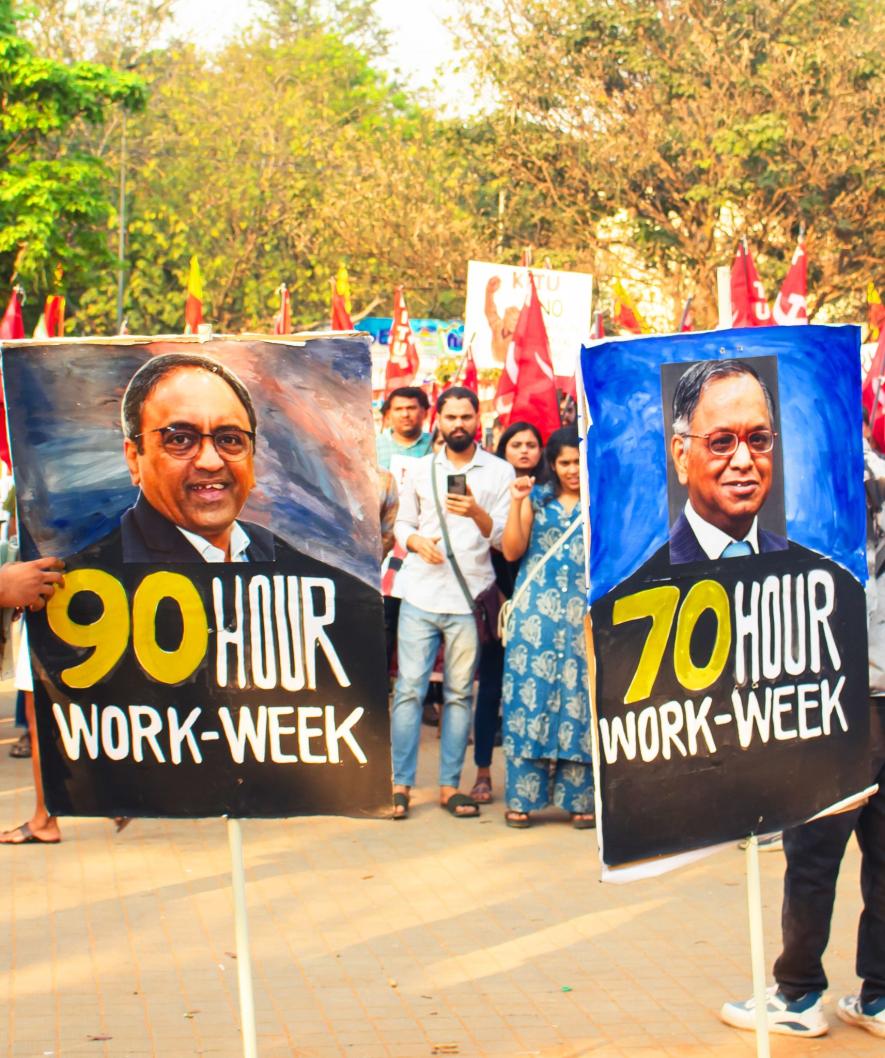Karnataka IT Stir: Proposal to Raise Work Hours Dropped

The Karnataka government has withdrawn a controversial amendment that would have increased working hours in the IT (information technology) and ITes (IT-enabled services) sectors, after months of workplace campaigns, protests and public opposition by the Karnataka State IT/ITes Employees Union (KITU), the only registered union representing IT employees in the Southern state.
The now-withdrawn proposal was part of the Karnataka Shops and Commercial Establishments (Amendment) Bill, 2025, which aimed to amend the 1961 Act to legally extend working hours in the IT/ITeS sector. The Bill followed a more extreme 2024 proposal that sought to legalise 14-hour shifts, which had to be rolled back after protests.
The now-shelved Karnataka Shops and Commercial Establishments (Amendment) Bill, 2025, introduced during a stakeholder consultation on June 18, proposed extending daily work hours from the existing 9 to 10 hours, with an additional two hours of overtime, and increased the quarterly cap on overtime from 50 to 144 hours. KITU representatives who attended the meeting said they unequivocally rejected the proposal, terming it a “direct assault” on the fundamental right of workers to maintain a personal and family life outside of work.
The union said its campaign gained traction across Bengaluru's IT corridors, tech parks, and corporate campuses. From street protests to social media campaigns, employees came together under KITU’s banner, asserting that longer working hours would worsen burnout, mental health issues, and work-life imbalance in an already demanding sector.
“This is not just a policy rollback; it is proof of the power of collective action,” KITU general secretary Suhas Adiga told this writer. “We made it clear that this Bill would not be allowed to pass under any circumstance. Our members and allies have shown what unity can achieve,” he added.
The government's decision to scrap the proposed amendment was communicated directly to KITU by Additional Labour Commissioner G. Manjunath in a recent meeting, confirming that the contentious changes would not move forward.
The controversy over increasing working hours has not risen in a vacuum. The broader public debate was recently reignited by Infosys co-founder N.R. Narayana Murthy, who, in late 2023, suggested that Indian youth should work up to 70 hours per week to increase national productivity. His remarks drew both support and criticism, reflecting deep divisions over the future of work culture in India.

Supporters of Murthy's view argued that longer hours were necessary for India to compete with global tech powerhouses, workers countered that such expectations are exploitative and unsustainable — especially employee well-being and work-life balance are increasingly recognized as essential for long-term productivity and innovation.
KITU, however, firmly rejected this line of thinking, stating that Indian IT workers already contribute significantly with extended shifts, late-night deployments, and 24/7 on-call support due to global time zone differences. The union emphasised that pushing for even longer workweeks without corresponding compensation, rest, or recognition only exacerbates existing stress and inequality in the workplace.
“Longer hours don’t mean better outcomes,” Adiga noted, adding that “these mean exhausted workers, poor mental health, and less innovation. It is not sustainable—for companies or the country.”
This withdrawal of the Bill is a watershed moment in the labour rights within India's white-collar economy. It shows that even in the high-skilled, fast-paced world of IT, workers are organising, pushing back, and demanding to be heard.
For years, India's tech workers were considered outside the scope of traditional labour struggles. Many were first-generation professionals, but beneath the glass towers and ‘big’ salaries, issues of overwork, burnout, and job insecurity have deepened—especially post-pandemic.
KITU’s success suggests that tech labour is no longer a contradiction in terms. It is a vital part of the emerging conversation on rights, dignity, and democracy in the workplace.
“This struggle was not just about stopping a Bill,” said Lenil Babu, one of the secretaries of KITU. “It was about drawing a line and asserting that IT workers are not machines. We deserve dignity, rest, and a life beyond the screen,” he added.
Karnataka’s IT workers have shown that when workers speak together, they can bend the powerful. The future of work in India will depend not just on technology or investment—but on how boldly workers assert their rightful stake in shaping it.
The writer is a Kerala-based journalist. The views are personal.
Get the latest reports & analysis with people's perspective on Protests, movements & deep analytical videos, discussions of the current affairs in your Telegram app. Subscribe to NewsClick's Telegram channel & get Real-Time updates on stories, as they get published on our website.
























